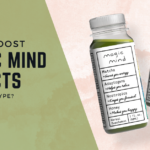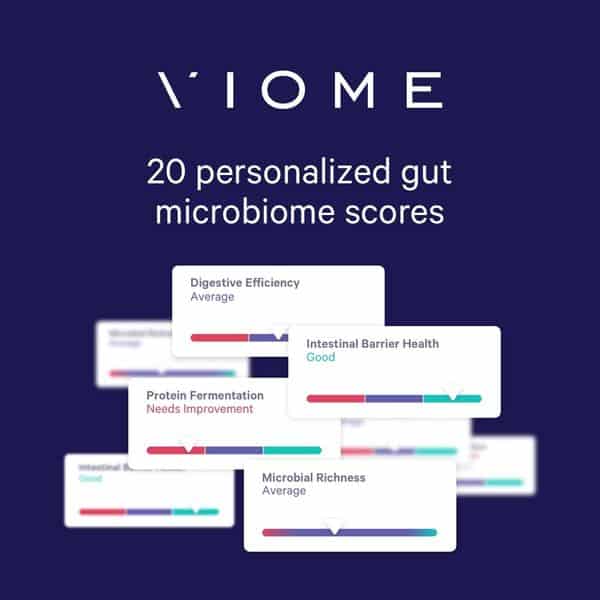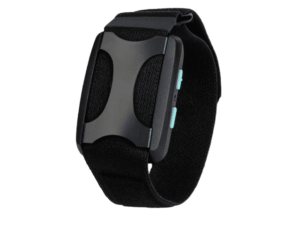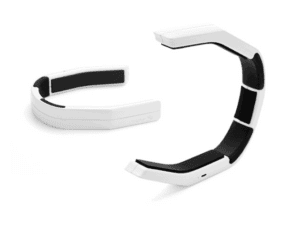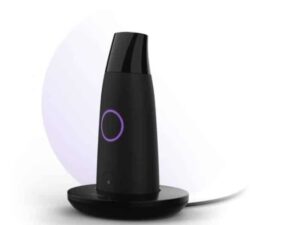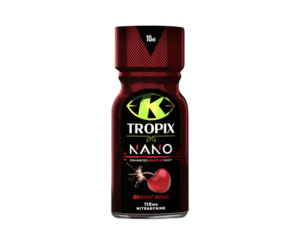Perhaps you’ve heard the adage, “Fish is brain food.”
Nowadays, many people are feeding their brains with fish in the form of supplementation.
Fish oil supplements provide the mind and body with crucial omega-3 fatty acids that many Westerners are so deficient in.
If you’re one of the many people interested in supplementing omega 3’s, it’s important to understand how to navigate the complicated world of fish oil and its associated products.
The following article is a deep dive into all things fish oil, including the benefits of supplementation, the variety of available products, recommended dosages, and safety issues to be cognizant of.

Biohack Your Brainpower
What Is Fish Oil?
Fish oils rich in DHA and EPA are the most common dietary supplements extracted from fish tissue.1Vida Šimat, Jelena Vlahović, Barbara Soldo, Danijela Skroza, Ivica Ljubenkov, and Ivana Generalić Mekinić, Production and Refinement of Omega-3 Rich Oils from Processing By-Products of Farmed Fish Species Foods. 2019
How is Fish Oil Extracted?
The most common fish used for extracting fish oil are salmon, herring, anchovies, sardines, mackerel, and tuna.2Kajal Chakraborty , Deepu Joseph, Production and characterization of refined oils obtained from Indian oil sardine (Sardinella longiceps) J Agric Food Chem. 20153Vida Šimat, Jelena Vlahović, Barbara Soldo, Danijela Skroza, Ivica Ljubenkov, and Ivana Generalić Mekinić, Production and Refinement of Omega-3 Rich Oils from Processing By-Products of Farmed Fish Species Foods. 20194Radjini A Racine , Richard J Deckelbaum, Sources of the very-long-chain unsaturated omega-3 fatty acids: eicosapentaenoic acid and docosahexaenoic acid Curr Opin Clin Nutr Metab Care. 20075Isabel Aidos , Albert van der Padt, Joop B Luten, Remko M Boom, Seasonal changes in crude and lipid composition of herring fillets, byproducts, and respective produced oils J Agric Food Chem. 2002
Fish use can be either caught from the wild or a by-product of farmed fish.
This includes the entrails, head, and trimmed parts after processing the fish.6Vida Šimat, Jelena Vlahović, Barbara Soldo, Danijela Skroza, Ivica Ljubenkov,3 and Ivana Generalić Mekinić4, Production and Refinement of Omega-3 Rich Oils from Processing By-Products of Farmed Fish Species Foods. 2019
However, because of its nature, fish oil is prone to oxidation and rancidity, so it goes through purification and stabilization.7Sajid Maqsood , Soottawat Benjakul, Afaf Kamal-Eldin, Extraction, processing, and stabilization of health-promoting fish oils Recent Pat Food Nutr Agric. 2012
This process removes the off-odors and off-flavors in the fish oil before it goes to the market.
Another method used to improve the quality of fish oils is through fractionation using supercritical carbon dioxide (SC-CO2).8F. Sahena I.S.M. Zaidul S. Jinap N. Saari H.A. Jahurul K.A. Abbas N.A. Norulaini, PUFAs in Fish: Extraction, Fractionation, Importance in Health Comprehensive Reviews in Food Science and Food Safety. 2010
Fractionation effectively removes the solid parts of the oil to improve its quality and shelf-life.9Razam Ab Latip, Yee-Ying Lee, Teck-Kim Tang, Eng-Tong Phuah, Choon-Min Lee, Chin-Ping Tan, and Oi-Ming Laicorresponding author, Palm-based diacylglycerol fat dry fractionation: effect of crystallisation temperature, cooling rate and agitation speed on physical and chemical properties of fractions PeerJ. 2013
The quality of the fish oil depends on the manufacturer’s attention to detail in these crucial steps.
Benefits of Fish Oils
Fish oils are best known to improve quality of life by delaying the aging process, preventing acute and chronic diseases, increasing life expectancy10João Pedro de Magalhães, Michael Müller, G. Ed. Rainger, and Wilma Steegenga, Fish oil supplements, longevity and aging Aging (Albany NY). 2016, and improving the body’s overall functions.11Hamid Nasri , Azar Baradaran , Hedayatollah Shirzad , Mahmoud Rafieian-Kopaei , New concepts in nutraceuticals as alternative for pharmaceuticals Int J Prev Med. 201412Syed Amir Ashraf, Mohd Adnan, Mitesh Patel, Arif Jamal Siddiqui,2 Manojkumar Sachidanandan, Mejdi Snoussi, and Sibte Hadi, Fish-Based Bioactives as Potent Nutraceuticals: Exploring the Therapeutic Perspective of Sustainable Food from the Sea Mar Drugs. 2020
Fish oils are essential for the proper development of the brain and the eyes.13Simon C. Dyall, Long-chain omega-3 fatty acids and the brain: a review of the independent and shared effects of EPA, DPA and DHA Front Aging Neurosci. 201514Syed Amir Ashraf, Mohd Adnan, Mitesh Patel,3 Arif Jamal Siddiqui, Manojkumar Sachidanandan, Mejdi Snoussi, and Sibte Hadi, Fish-Based Bioactives as Potent Nutraceuticals: Exploring the Therapeutic Perspective of Sustainable Food from the Sea Mar Drugs. 202015James J DiNicolantonio , James H O’Keefe , The Importance of Marine Omega-3s for Brain Development and the Prevention and Treatment of Behavior, Mood, and Other Brain Disorders Nutrients. 2020

Women of child-bearing age also benefit from consuming fish oil as it lessens the incidence of postpartum depression16Syed Amir Ashraf, Mohd Adnan, Mitesh Patel, Arif Jamal Siddiqui, Manojkumar Sachidanandan, Mejdi Snoussi, and Sibte Hadi, Fish-Based Bioactives as Potent Nutraceuticals: Exploring the Therapeutic Perspective of Sustainable Food from the Sea Mar Drugs. 202017Mei-Chi Hsu , Chia-Yi Tung , Hsing-E Chen, Omega-3 polyunsaturated fatty acid supplementation in prevention and treatment of maternal depression: Putative mechanism and recommendation J Affect Disord. 2018
Most importantly, fish oil plays an essential role in improving mental health conditions such as ADHD, bipolar disorder, depression, and PTSD.18James J DiNicolantonio , James H O’Keefe, The Importance of Marine Omega-3s for Brain Development and the Prevention and Treatment of Behavior, Mood, and Other Brain Disorders Nutrients. 202019Laiali Alquraan, Karem H. Alzoubi, Hana Hammad,1 Suzie Y. Rababa’h, and Fadia Mayyas, Omega-3 Fatty Acids Prevent Post-Traumatic Stress Disorder-Induced Memory Impairment Biomolecules. 201920Radjini A Racine , Richard J Deckelbaum, Sources of the very-long-chain unsaturated omega-3 fatty acids: eicosapentaenoic acid and docosahexaenoic acid Curr Opin Clin Nutr Metab Care. 200721Yuhua Liao , Bo Xie , Huimin Zhang , Qian He , Lan Guo , M Subramaniapillai , Beifang Fan , Ciyong Lu , R S Mclntyer, Efficacy of omega-3 PUFAs in depression: A meta-analysis Transl Psychiatry. 2019
It acts by preventing inflammation in the neural cells, which helps manage depression.22Mansoor D. Burhania and Mark M. Rasenick, Fish oil and depression: The skinny on fats J Integr Neurosci. 201723Saray Gutiérrez, Sara L Svahn, and Maria E Johansson, Effects of Omega-3 Fatty Acids on Immune Cells Int J Mol Sci. 2019
Lowering inflammation has been documented to improve a person’s mood and fatigue levels.24Chieh-Hsin Lee1 and Fabrizio Giuliani, The Role of Inflammation in Depression and Fatigue Front Immunol. 201925Charles L. Raisoncorresponding author and Andrew H. Miller, Is Depression an Inflammatory Disorder? Curr Psychiatry Rep. 2011
It can also potentially lower suicidal ideation as it helps to modify neurotransmitter signaling26John A Allen , Robyn A Halverson-Tamboli, Mark M Rasenick, Lipid raft microdomains and neurotransmitter signalling Nat Rev Neurosci. 200727Mansoor D. Burhania and Mark M. Rasenick, Fish oil and depression: The skinny on fats J Integr Neurosci. 2017and G-proteins28Robert J Donati , Yogesh Dwivedi, Rosalinda C Roberts, Robert R Conley, Ghanshyam N Pandey, Mark M Rasenick, Postmortem brain tissue of depressed suicides reveals increased Gs alpha localization in lipid raft domains where it is less likely to activate adenylyl cyclase J Neurosci. 2008, which appear to be high in the postmortem brain samples of people who commit suicide.29Mansoor D. Burhania and Mark M. Rasenick, Fish oil and depression: The skinny on fats J Integr Neurosci. 2017
In older patients, omega-3 fatty acids from fish oils help prevent dementia, Alzheimer’s Disease, and mood disorders.30Paola Bozzatello, Elena Brignolo, Elisa De Grandi, and Silvio Bellino, Supplementation with Omega-3 Fatty Acids in Psychiatric Disorders: A Review of Literature Data J Clin Med. 201631Yuhua Liao, Bo Xie, Huimin Zhang, Qian He, Lan Guo, M. Subramaniapillai, Beifang Fan, Ciyong Lu & R. S. Mclntyer , Efficacy of omega-3 PUFAs in depression: A meta-analysis Translational Psychiatry. 201932Paola Bozzatello, Elena Brignolo, Elisa De Grandi, and Silvio Bellino, Supplementation with Omega-3 Fatty Acids in Psychiatric Disorders: A Review of Literature Data J Clin Med. 201633Syed Amir Ashraf, Mohd Adnan, Mitesh Patel, Arif Jamal Siddiqui, Manojkumar Sachidanandan, Mejdi Snoussi, and Sibte Hadi, Fish-Based Bioactives as Potent Nutraceuticals: Exploring the Therapeutic Perspective of Sustainable Food from the Sea Mar Drugs. 202034Bimal Prasanna Mohanty , Satabdi Ganguly , Arabinda Mahanty , T V Sankar , R Anandan , Kajal Chakraborty , B N Paul , Debajit Sarma, J Syama Dayal , G Venkateshwarlu , Suseela Mathew , K K Asha , D Karunakaran , Tandrima Mitra , Soumen Chanda , Neetu Shahi , Puspita Das , Partha Das , Md Shahbaz Akhtar , P Vijayagopal , N Sridhar , DHA and EPA Content and Fatty Acid Profile of 39 Food Fishes from India Biomed Res Int. 201635Alessandro Assisi , Rita Banzi, Carmela Buonocore, Filippo Capasso, Valeria Di Muzio, Francesca Michelacci, Danila Renzo, Giovanni Tafuri, Francesco Trotta, Maria Vitocolonna, Silvio Garattini, Fish oil and mental health: the role of n-3 long-chain polyunsaturated fatty acids in cognitive development and neurological disorders Int Clin Psychopharmacol. 2006
Dosage
The Food and Nutrition Board of the Institute of Medicine has not identified the right dosage for fish oils but has set the Adequate Intakes (AIs) for omega-3 fatty acids.36NIH, https://ods.od.nih.gov/factsheets/Omega3FattyAcids-HealthProfessional/ NIH. 2020
The Adequate Intake for babies to children up to 8 years old ranges from 0.5g to 0.9g for both males and females.37David Kiefer, MD and Traci Pantuso, ND, Omega-3 fatty acids: An update emphasizing clinical use Agro Food Ind Hi Tech. 2012
From ages nine and above, the AI is higher for the males at 1.2g to1.6g and 1g to 1.1g in females.38Paola Bozzatello, Elena Brignolo, Elisa De Grandi, and Silvio Bellino, Supplementation with Omega-3 Fatty Acids in Psychiatric Disorders: A Review of Literature Data J Clin Med. 2016

Pregnant women need more at 1.4g, and breastfeeding women need 1.3g.
Literature differs in their recommendations on the dosage of fish oils, but many recommend between 1.5g – 5g/day to be considered safe for autism, anxiety disorders, OCD, anorexia nervosa, or substance addictions.39Yuhua Liao, Bo Xie, Huimin Zhang, Qian He, Lan Guo, M. Subramaniapillai, Beifang Fan, Ciyong Lu & R. S. Mclntyer , Efficacy of omega-3 PUFAs in depression: A meta-analysis Translational Psychiatry. 2019
For people diagnosed with depression, a dose of 720mg – 1000mg/day of omega-3 fatty acids from fish oil showed the best in achieving the desired effect.40Paola Bozzatello, Elena Brignolo, Elisa De Grandi, and Silvio Bellino, Supplementation with Omega-3 Fatty Acids in Psychiatric Disorders: A Review of Literature Data J Clin Med. 2016
Clinical practitioners recommend lower doses of omega-3 fatty acids for persons with ADHD and other conditions where impulsiveness and aggression are the primary concern.41Maria Alessandra Gammone, Graziano Riccioni, Gaspare Parrinello, and Nicolantonio D’Orazio, Omega-3 Polyunsaturated Fatty Acids: Benefits and Endpoints in Sport Nutrients. 2019
For schizophrenia, though, there is no definitive data for the recommended dose, so it is prudent to stay on the modest side to prevent adverse effects.
Side effects
Adverse effects of prolonged or misuse of fish oils include altered platelet function, leading to clotting problems and poor wound healing.42Dan Xie , Hongyan Mu , Tianpei Tang 3, Xiaosan Wang , Wei Wei , Jun Jin , Xingguo Wang , Qingzhe Jin, Production of three types of krill oils from krill meal by a three-step solvent extraction procedure Food Chem. 201843Yuhua Liao, Bo Xie, Huimin Zhang, Qian He, Lan Guo, M. Subramaniapillai, Beifang Fan, Ciyong Lu & R. S. Mclntyer , Efficacy of omega-3 PUFAs in depression: A meta-analysis Translational Psychiatry 2019
Refrain from using fish oil supplements when under antiplatelet or anticoagulant treatment to avoid side effects.
Lipid peroxidation is another adverse effect of unsupervised use of fish oils. This condition affects the cell membrane’s stability and the attack of free radicals on proteins and DNA.
To counter this adverse effect, add antioxidant supplements or eat a diet high in vitamins A, C, and E, which are good antioxidants.
A high dosage of PUFAs is discouraged for people taking antidepressant medication since it messes with serotonin reuptake inhibitors’ actions.44Inge S.M. van der Wurff, Clemens von Schacky, Trygve Bergeland, Roeslan Leontjevas, Maurice P. Zeegers, Jelle Jolles,8 Paul A. Kirschner,1,9 and Renate H.M. de Groot, Effect of 1 Year Krill Oil Supplementation on Cognitive Achievement of Dutch Adolescents: A Double-Blind Randomized Controlled Trial Nutrients. 201945Joseph C.Gigliottia, Matthew P.Davenport,Sarah K.Beamera,Janet C.TouaJ.Jaczynski, Extraction and characterisation of lipids from Antarctic krill (Euphausia superba) Food Chemistry. 2011
What is Krill Oil?
Krill serve as the most massive biomass that feeds various fish, marine mammals, and penguins. These are tiny crustaceans that abound in all oceans around the world.46NOOA, Krill and Oceanographic Research in the Antarctic NOOA. 2020
It is a known fact that species that live in colder waters have a higher oil content than the fish living in tropical waters, so only Antarctic krill are used in extracting krill oil.
How is Krill Oil Extracted?
Extracting krill oil involves a few approved processes.
One efficient process involves adding ethanol and acetone to freeze-dried krill.
However, when used alone to extract krill oil, acetone showed low omega-3 acids and low phospholipids compared to those extracted using either ethanol and isopropanol.47Weiwei Sun, Bowen Shi, Changhu Xue, and Xiaoming Jiang, The comparison of krill oil extracted through ethanol–hexane method and subcritical method Food Sci Nutr. 2019

Benefits of Krill Oil
Research on Dutch adolescents given krill oil as a supplement for a year showed little improvement in cognitive functions.48Dan Xie , Jun Jin , Jiang Sun , Li Liang , Xiaosan Wang , Wei Zhang , Xingguo Wang, Qingzhe Jin , Comparison of solvents for extraction of krill oil from krill meal: Lipid yield, phospholipids content, fatty acids composition and minor componentsy Food Chem. 2017
However, cognitive function improved among elderly patients administered with krill oil.49Dan Xie , Hongyan Mu , Tianpei Tang , Xiaosan Wang , Wei Wei , Jun Jin , Xingguo Wang 3, Qingzhe Jin, Production of three types of krill oils from krill meal by a three-step solvent extraction procedure Food Chem. 2018
Compared with krill oil, fish oil is a better source of omega-3 fatty acids, but krill oil lasts longer in the body.50Inge S.M. van der Wurff, Clemens von Schacky, Trygve Bergeland,4 Roeslan Leontjevas,5 Maurice P. Zeegers,Jelle Jolles,8 Paul A. Kirschner, and Renate H.M. de Groot, Effect of 1 Year Krill Oil Supplementation on Cognitive Achievement of Dutch Adolescents: A Double-Blind Randomized Controlled Trial Nutrients. 201951Chizuru Konagai,Kenichi Yanagimoto, Kohsuke Hayamizu, Li Han,3 Tomoko Tsuji, and Yoshihiko Koga, Effects of krill oil containing n-3 polyunsaturated fatty acids in phospholipid form on human brain function: a randomized controlled trial in healthy elderly volunteers Clin Interv Aging. 2013

Metabolism of krill oil is more efficient than fish oil in that both had comparable results even if the PUFA levels in krill oil are lower than that of fish oil.52So Hyun Ahn, Su Jin Lim, Young Moo Ryu, Hye-Ryung Park, Hyung Joo Suh, and Sung Hee Han, Absorption rate of krill oil and fish oil in blood and brain of rats Lipids Health Dis. 201853Vanu R Ramprasath, Inbal Eyal, Sigalit Zchut, Peter J H Jones, Enhanced increase of omega-3 index in healthy individuals with response to 4-week n-3 fatty acid supplementation from krill oil versus fish oil Lipids Health Dis. 2013
This result further corroborated the findings that krill oil can improve the brain’s cognitive functions.54Stine M Ulven , Bente Kirkhus, Amandine Lamglait, Samar Basu, Elisabeth Elind, Trond Haider, Kjetil Berge, Hogne Vik, Jan I Pedersen, Metabolic effects of krill oil are essentially similar to those of fish oil but at lower dose of EPA and DHA, in healthy volunteers Lipids. 201155Stine M Ulven , Kirsten B Holven, Comparison of bioavailability of krill oil versus fish oil and health effect Vasc Health Risk Manag. 201556So Hyun Ahn, Su Jin Lim, Young Moo Ryu, Hye-Ryung Park, Hyung Joo Suh, and Sung Hee Han, Absorption rate of krill oil and fish oil in blood and brain of rats Lipids Health Dis. 2018
Another study also proved that krill oil has a more potent anti-inflammatory effect than fish oil when fed to mice.57F S H Lu , I Bruheim , B O Haugsgjerd , C Jacobsen, Effect of temperature towards lipid oxidation and non-enzymatic browning reactions in krill oil upon storage Food Chem. 2014
Since inflammation is one precursor to depression, there is a strong potential for krill oil to prevent or manage depression.
Dosage
There is no data for the dosage of krill oil, but a dose lower than the recommended dosage for fish oil is enough based on the information included here.
One study showed that 825mg of krill oil per day effectively reduced inflammation from oxidative stress58Vincenzo Di Marzoa, Mikko Griinarib, Gianfranca Cartac, Elisabetta Murruc, Alessia Ligrestia, Lina Cordedduc, Elena Giordanoc, Tiziana Bisognoa, Maria Collue, Barbara Batettadf, Sabrina Udad, Kjetil Bergeg, Sebastiano Banni, Dietary krill oil increases docosahexaenoic acid and reduces 2-arachidonoylglycerol but not N-acylethanolamine levels in the brain of obese Zucker rats International Dairy Journal. 2010
, contributing to Alzheimer’s disease, depression, memory loss, and other degenerative diseases.59Jon Skorve, Mika Hilvo, Terhi Vihervaara, Lena Burri, Pavol Bohov, Veronika Tillander, Bodil Bjørndal, Matti Suoniemi, Reijo Laaksonen, Kim Ekroos, Rolf K. Berge, and Stefan E. H. Alexson, Fish oil and krill oil differentially modify the liver and brain lipidome when fed to mice Lipids Health Dis. 201560Rolf K. Berge, Marie S. Ramsvik, Pavol Bohov, Asbjørn Svardal, Jan E. Nordrehaug, Espen Rostrup, Inge Bruheim, and Bodil Bjørndal, Krill oil reduces plasma triacylglycerol level and improves related lipoprotein particle concentration, fatty acid composition and redox status in healthy young adults – a pilot study Lipids Health Dis. 2015
Side Effects
Side effects listed after krill oil use were allergic reactions, nausea, sleeplessness, hunger, headache, and a fishy taste in the mouth. A more comprehensive study to prove these claims is needed.61Inge S.M. van der Wurff,* Clemens von Schacky, Trygve Bergeland, Roeslan Leontjevas, Maurice P. Zeegers, Jelle Jolles, Paul A. Kirschner, and Renate H.M. de Groot1, Effect of 1 Year Krill Oil Supplementation on Cognitive Achievement of Dutch Adolescents: A Double-Blind Randomized Controlled Trial Nutrients. 2019
People taking Lovaza should see a medical professional before taking krill oil since a study showed adverse effects on the health and lifespan of long-lived F1 mice.62Stephen R Spindler , Patricia L Mote, James M Flegal, Dietary supplementation with Lovaza and krill oil shortens the life span of long-lived F1 mice Age (Dordr). 2014
What is Cod Liver Oil?
Cod liver oil, extracted from the liver of Gadus morhua, is one of the most popular types of omega-3 fatty acid supplements.

How is Cod Liver Oil Extracted?
There are a variety of methods to extract cod liver oil. Some methods are very rudimentary, and therefore, the resulting oil is not fit for human consumption.
However, in the 1850s, Peter Möller managed to extract cod liver oil by steaming fresh cod livers. This method is now known as the Möller method and is the most popular cod liver oil extraction method to date.
Manufacturers extract the oil within 24 hours after the fish is caught.63Möller’s, Möller’s Cod Liver Oil Möller’s. 2016
To maintain the quality of cod liver oil, manufacturers protect the oil from overexposure to oxygen since oxidized oil can cause intestinal irritation.64Karin Larsson , Lillie Cavonius, Marie Alminger, Ingrid Undeland, Oxidation of cod liver oil during gastrointestinal in vitro digestion J Agric Food Chem. 2012
Benefits
Cod liver oil is useful in managing and preventing depression and anxiety.65Maria Baroy Raeder , Vidar M Steen, Stein Emil Vollset, Ingvar Bjelland, Associations between cod liver oil use and symptoms of depression: the Hordaland Health Study J Affect Disord. 2007
The use of cod liver oil also lessens the risk of inflammation by countering arachidonic acid’s inflammatory effects, a type of n-6 essential fatty acids.66Vinay Kumar Gupta, Z. Y. Zafer Khan, and Mushtaq Ahmad, The Concomitant Consumption of Cod Liver Oil Causes a Reduction in the Daily Diclofenac Sodium Usage in Rheumatoid Arthritis Patients: A Pilot Study J Clin Diagn Res. 2013
As previously stated, inflammation may lead to various inflammatory diseases, including psychiatric and neurodegenerative diseases.
Dosage
There is limited information on the dosage of cod liver oil for mental health problems. Still, more established data for maintaining cardiovascular health pegs a dose of between 250-500mg per day.67Vinay Kumar Gupta, Z. Y. Zafer Khan, and Mushtaq Ahmad, The Concomitant Consumption of Cod Liver Oil Causes a Reduction in the Daily Diclofenac Sodium Usage in Rheumatoid Arthritis Patients: A Pilot Study J Clin Diagn Res. 2013
Side Effects
Take precaution when adding cod liver oil as a supplement when one is pregnant, asthmatic, or taking anticoagulants as part of your medication.68George T. Griffing, MD, Mother Was Right About Cod Liver Oil Medscape J Med. 2008
Another adverse effect of overdosage (>1500mcg/day) is bone health69Marleen A.H. Lentjes, Ailsa A. Welch, Angela A. Mulligan, Robert N. Luben, Nicholas J. Wareham, and Kay-Tee Khaw, Cod Liver Oil Supplement Consumption and Health: Cross-sectional Results from the EPIC-Norfolk Cohort Study Nutrients. 2014, so it is best to stay way below that dosage.
What is Algae Oil?
Algae oil is a good alternative for vegans and vegetarians who have an increased need for omega-3 fatty acids.70Georgia Lenihan-Geels, Karen S. Bishop, and Lynnette R. Ferguson, Alternative Sources of Omega-3 Fats: Can We Find a Sustainable Substitute for Fish? Nutrients. 2013
However, the consumer must practice vigilance when choosing the right algal oil since some only contain EPA.71PubMEd, Acute appearance of fatty acids in human plasma–a comparative study between polar-lipid rich oil from the microalgae Nannochloropsis oculata and krill oil in healthy young males. Lipids Health Dis. 2013
Green algae, brown algae, red algae, diatoms, and fresh water single-cell green algae are all excellent sources of both DHA and EPA.72John L. Harwood, Algae: Critical Sources of Very Long-Chain Polyunsaturated Fatty Acids Biomolecules. 2019

How is Algae Oil Extracted?
Different methods73John L. Harwood, Algae: Critical Sources of Very Long-Chain Polyunsaturated Fatty Acids Biomolecules. 2019
extract oil from the algae, but the most recent advancement uses supercritical carbon dioxide (SC-CO2), which maximizes the lipid extraction up to 31%.74 Ramanathan Ranjith Kumar, Polur Hanumantha Rao, Muthu ArumugamLipid extraction methods from microalgae: a comprehensive review Front. Energy Res. 2015
However, another study recommended solvent-free extraction like enzymatic degradation as they have a promising future in laboratory-scale production.
Benefits
Algal oil shows potential in improving underperforming children’s behavior and other mental health conditions in subjects of various ages.75Emma Derbyshire, Brain Health across the Lifespan: A Systematic Review on the Role of Omega-3 Fatty Acid Supplements Nutrients. 2018
These conditions include ADHD, mood disorders, autism, low cognitive functions, memory, and brain activation.
Sex may play a role in response to algae oil supplementation.
This result may explain why more women are diagnosed with Alzheimer’s disease, cognitive dysfunction, and dementia.76Author(s), Sex and gender differences in the treatment of Alzheimer’s disease: A systematic review of randomized controlled trials Pharmacological Research. 201777Katherine A.LinabKingshuk Roy Choudhuryc Bharath G.Rathakrishnana David M.MarksaJeffrey R.PetrellacP. MuraliDoraiswamy, Marked gender differences in progression of mild cognitive impairment over 8 years Alzheimer’s & Dementia: Translational Research & Clinical Interventions. 2015
This effect further showed the correlation between a healthy gut and brain function.
Maintain the health of the microbiota-gut-brain axis. An unhealthy gut increases the chances of depression, altered social behavior78Mark L. Wells, Philippe Potin, James S. Craigie, John A. Raven, Sabeeha S. Merchant, Katherine E. Helliwell, Alison G. Smith, Mary Ellen Camire, and Susan H. Brawley, Algae as nutritional and functional food sources: revisiting our understanding J Appl Phycol. 2017Maintain the health of the microbiota-gut-brain axis. An unhealthy gut increases the chances of depression, altered social behavior79Mark L. Wells, Philippe Potin, James S. Craigie, John A. Raven, Sabeeha S. Merchant, Katherine E. Helliwell, Alison G. Smith, Mary Ellen Camire, and Susan H. Brawley, Algae as nutritional and functional food sources: revisiting our understanding J Appl Phycol. 2017, and autism.80Arne Reimers and Hanna Ljung, The emerging role of omega-3 fatty acids as a therapeutic option in neuropsychiatric disorders Ther Adv Psychopharmacol. 2019
Dosage
There is no definite dose for algal oil consumption for humans, but a study on underperforming children aged 7-9 showed improvement in their behavior after using 600mg/day algal oil for 16 weeks.81Irina Dahms , Eileen Bailey-Hall , Erin Sylvester , Audrey Parenteau , Shiguang Yu , Alexios Karagiannis , Franz Roos , Jon Wilson, Safety of a novel feed ingredient, Algal Oil containing EPA and DHA, in a gestation-lactation-growth feeding study in Beagle dogs PLoS One. 2019
Side Effects
Consumption of algal oil from Nannochloropsis oculata is generally safe82Michael L. Kagana, and Ray A. Matulka, Safety assessment of the microalgae Nannochloropsis oculata Toxicol Rep. 2015, but more studies are needed to corroborate this claim.
A study on the bioequivalence of algal oil from undisclosed algae also showed the viability and safety of algal oil capsule supplements.83Linda M Arterburn , Harry A Oken, James P Hoffman, Eileen Bailey-Hall, Gloria Chung, Dror Rom, Jacqueline Hamersley, Deanna McCarthy, Bioequivalence of Docosahexaenoic acid from different algal oils in capsules and in a DHA-fortified food Lipids. 2007
The Ugly Side of Producing Marine-Sourced Omega-3 Oils

Challenges and Complications
The marine environment is a vast ecosystem that hosts various life forms. It is also the depository of all effluents arising from human activities.
As a result, fish, algae, and marine mammals thrive in a polluted environment, accumulating toxic substances in their cells over the years.
One of the most critical challenges in producing omega-3 oil from marine sources is the high mercury84Syed Amir Ashraf, Mohd Adnan, Mitesh Patel, Arif Jamal Siddiqui, Manojkumar Sachidanandan, Mejdi Snoussi, and Sibte Hadi, Fish-Based Bioactives as Potent Nutraceuticals: Exploring the Therapeutic Perspective of Sustainable Food from the Sea Mar Drugs. 202085Edwin van Wijngaarden , Sally W Thurston , Gary J Myers , Donald Harrington , Deborah A Cory-Slechta , J J Strain , Gene E Watson , Grazyna Zareba , Tanzy Love , Juliette Henderson , Conrad F Shamlaye , Philip W Davidson, Methyl mercury exposure and neurodevelopmental outcomes in the Seychelles Child Development Study Main cohort at age 22 and 24years Neurotoxicol Teratol. 2017, especially in seas near mining locations.
Toxic chemicals from agricultural practices are another threat to consider.
Industrial wastes continuously dumped in the rivers and creeks that eventually end up in the oceans also pose a high risk for aquatic life contamination.
Some of these chemicals have a long half-life. As the fish grows, more toxins accumulate in the different parts of its body if not removed from the toxic environment.

Humans then ingest these toxins, and the cycle goes on.
Add to that the very pressing issue of microplastics, which disrupt the endocrine system. Ingestion of these microplastics results in neurologic manifestations.86Jeesuk Yu, MD, Endocrine disorders and the neurologic manifestations Ann Pediatr Endocrinol Metab. 2014
These accumulated toxins trigger various illnesses and conditions, including low reproductive capacity, developmental problems in developing fetuses and growing children, kidney diseases, and cancer.87Dariush Mozaffarian , Eric B Rimm, Fish intake, contaminants, and human health: evaluating the risks and the benefits JAMA. 2006
Algae are no better since they act as the siphon of toxins in their environment while also absorbing these toxins into their cells.88Rebecca Beauvais-Flück, Vera I. Slaveykova, and Claudia Cosio, Cellular toxicity pathways of inorganic and methyl mercury in the green microalga Chlamydomonas reinhardtii Sci Rep. 2017
Low Dietary Omega-3 Fatty Acids
Another issue is getting the right amounts of omega-3 fatty acids from the diet.
Certain dietary restrictions from religion, preferences, culture, and access to fish and seafood are the most prominent reasons.89Emily Oken , Anna L Choi, Margaret R Karagas, Koenraad Mariën, Christoph M Rheinberger, Rita Schoeny, Elsie Sunderland, Susan Korrick, Which fish should I eat? Perspectives influencing fish consumption choices Environ Health Perspect. 2012
Omega 3’s From Real Food
For those wary of supplements, these powerful nutrients can also be gotten from the actual fish themselves.
Much like supplements, it’s important to know which fish to steer clear from.
Tuna, swordfish, and king mackerel are all notorious for high mercury levels.90Joanna Burger , Michael Gochfeld, Mercury in canned tuna: white versus light and temporal variation Environ Res. 2004
Good, low-mercury fish alternatives include salmon, pollock, sardines, cod, and tilapia,
Other seafood like shrimp, clams, oysters, and crabs are also fairly safe.91Alan Abelsohn MB CHB CCFP FCFP, Loren D. Vanderlinden PHD,Fran Scott, MD, Josephine A. Archbold, MSC , Tara L. Brown, MHSC RD Healthy fish consumption and reduced mercury exposure Can Fam Physician. 2011
You can also get adequate omega-3 fatty acids from red meat, organs, nuts, and beans.
Vegetables like beans, broccoli, and its family, and purslane and fruits like avocado and berries are good sources of omega-3.92Waleed Amjad Khan, Hu Chun-Mei, Nadeem Khan, Amjad Iqbal, Shan-Wu Lyu, and Farooq Shah, Bioengineered Plants Can Be a Useful Source of Omega-3 Fatty Acids Biomed Res Int. 2017
Bottomline
Overall, adding a high-omega 3 supplement like fish oil into your day seems to have many mental health benefits.
However, judiciousness and vigilance come into play when choosing the right combination of food and supplements to obtain the right amount of omega-3 fatty acids for the brain’s proper functioning.
The good thing is you have plenty of options to experiment with and find what works best for you!
_______________
- 1Vida Šimat, Jelena Vlahović, Barbara Soldo, Danijela Skroza, Ivica Ljubenkov, and Ivana Generalić Mekinić, Production and Refinement of Omega-3 Rich Oils from Processing By-Products of Farmed Fish Species Foods. 2019
- 2Kajal Chakraborty , Deepu Joseph, Production and characterization of refined oils obtained from Indian oil sardine (Sardinella longiceps) J Agric Food Chem. 2015
- 3Vida Šimat, Jelena Vlahović, Barbara Soldo, Danijela Skroza, Ivica Ljubenkov, and Ivana Generalić Mekinić, Production and Refinement of Omega-3 Rich Oils from Processing By-Products of Farmed Fish Species Foods. 2019
- 4Radjini A Racine , Richard J Deckelbaum, Sources of the very-long-chain unsaturated omega-3 fatty acids: eicosapentaenoic acid and docosahexaenoic acid Curr Opin Clin Nutr Metab Care. 2007
- 5Isabel Aidos , Albert van der Padt, Joop B Luten, Remko M Boom, Seasonal changes in crude and lipid composition of herring fillets, byproducts, and respective produced oils J Agric Food Chem. 2002
- 6Vida Šimat, Jelena Vlahović, Barbara Soldo, Danijela Skroza, Ivica Ljubenkov,3 and Ivana Generalić Mekinić4, Production and Refinement of Omega-3 Rich Oils from Processing By-Products of Farmed Fish Species Foods. 2019
- 7Sajid Maqsood , Soottawat Benjakul, Afaf Kamal-Eldin, Extraction, processing, and stabilization of health-promoting fish oils Recent Pat Food Nutr Agric. 2012
- 8F. Sahena I.S.M. Zaidul S. Jinap N. Saari H.A. Jahurul K.A. Abbas N.A. Norulaini, PUFAs in Fish: Extraction, Fractionation, Importance in Health Comprehensive Reviews in Food Science and Food Safety. 2010
- 9Razam Ab Latip, Yee-Ying Lee, Teck-Kim Tang, Eng-Tong Phuah, Choon-Min Lee, Chin-Ping Tan, and Oi-Ming Laicorresponding author, Palm-based diacylglycerol fat dry fractionation: effect of crystallisation temperature, cooling rate and agitation speed on physical and chemical properties of fractions PeerJ. 2013
- 10João Pedro de Magalhães, Michael Müller, G. Ed. Rainger, and Wilma Steegenga, Fish oil supplements, longevity and aging Aging (Albany NY). 2016
- 11Hamid Nasri , Azar Baradaran , Hedayatollah Shirzad , Mahmoud Rafieian-Kopaei , New concepts in nutraceuticals as alternative for pharmaceuticals Int J Prev Med. 2014
- 12Syed Amir Ashraf, Mohd Adnan, Mitesh Patel, Arif Jamal Siddiqui,2 Manojkumar Sachidanandan, Mejdi Snoussi, and Sibte Hadi, Fish-Based Bioactives as Potent Nutraceuticals: Exploring the Therapeutic Perspective of Sustainable Food from the Sea Mar Drugs. 2020
- 13Simon C. Dyall, Long-chain omega-3 fatty acids and the brain: a review of the independent and shared effects of EPA, DPA and DHA Front Aging Neurosci. 2015
- 14Syed Amir Ashraf, Mohd Adnan, Mitesh Patel,3 Arif Jamal Siddiqui, Manojkumar Sachidanandan, Mejdi Snoussi, and Sibte Hadi, Fish-Based Bioactives as Potent Nutraceuticals: Exploring the Therapeutic Perspective of Sustainable Food from the Sea Mar Drugs. 2020
- 15James J DiNicolantonio , James H O’Keefe , The Importance of Marine Omega-3s for Brain Development and the Prevention and Treatment of Behavior, Mood, and Other Brain Disorders Nutrients. 2020
- 16Syed Amir Ashraf, Mohd Adnan, Mitesh Patel, Arif Jamal Siddiqui, Manojkumar Sachidanandan, Mejdi Snoussi, and Sibte Hadi, Fish-Based Bioactives as Potent Nutraceuticals: Exploring the Therapeutic Perspective of Sustainable Food from the Sea Mar Drugs. 2020
- 17Mei-Chi Hsu , Chia-Yi Tung , Hsing-E Chen, Omega-3 polyunsaturated fatty acid supplementation in prevention and treatment of maternal depression: Putative mechanism and recommendation J Affect Disord. 2018
- 18James J DiNicolantonio , James H O’Keefe, The Importance of Marine Omega-3s for Brain Development and the Prevention and Treatment of Behavior, Mood, and Other Brain Disorders Nutrients. 2020
- 19Laiali Alquraan, Karem H. Alzoubi, Hana Hammad,1 Suzie Y. Rababa’h, and Fadia Mayyas, Omega-3 Fatty Acids Prevent Post-Traumatic Stress Disorder-Induced Memory Impairment Biomolecules. 2019
- 20Radjini A Racine , Richard J Deckelbaum, Sources of the very-long-chain unsaturated omega-3 fatty acids: eicosapentaenoic acid and docosahexaenoic acid Curr Opin Clin Nutr Metab Care. 2007
- 21Yuhua Liao , Bo Xie , Huimin Zhang , Qian He , Lan Guo , M Subramaniapillai , Beifang Fan , Ciyong Lu , R S Mclntyer, Efficacy of omega-3 PUFAs in depression: A meta-analysis Transl Psychiatry. 2019
- 22Mansoor D. Burhania and Mark M. Rasenick, Fish oil and depression: The skinny on fats J Integr Neurosci. 2017
- 23Saray Gutiérrez, Sara L Svahn, and Maria E Johansson, Effects of Omega-3 Fatty Acids on Immune Cells Int J Mol Sci. 2019
- 24Chieh-Hsin Lee1 and Fabrizio Giuliani, The Role of Inflammation in Depression and Fatigue Front Immunol. 2019
- 25Charles L. Raisoncorresponding author and Andrew H. Miller, Is Depression an Inflammatory Disorder? Curr Psychiatry Rep. 2011
- 26John A Allen , Robyn A Halverson-Tamboli, Mark M Rasenick, Lipid raft microdomains and neurotransmitter signalling Nat Rev Neurosci. 2007
- 27Mansoor D. Burhania and Mark M. Rasenick, Fish oil and depression: The skinny on fats J Integr Neurosci. 2017
- 28Robert J Donati , Yogesh Dwivedi, Rosalinda C Roberts, Robert R Conley, Ghanshyam N Pandey, Mark M Rasenick, Postmortem brain tissue of depressed suicides reveals increased Gs alpha localization in lipid raft domains where it is less likely to activate adenylyl cyclase J Neurosci. 2008
- 29Mansoor D. Burhania and Mark M. Rasenick, Fish oil and depression: The skinny on fats J Integr Neurosci. 2017
- 30Paola Bozzatello, Elena Brignolo, Elisa De Grandi, and Silvio Bellino, Supplementation with Omega-3 Fatty Acids in Psychiatric Disorders: A Review of Literature Data J Clin Med. 2016
- 31Yuhua Liao, Bo Xie, Huimin Zhang, Qian He, Lan Guo, M. Subramaniapillai, Beifang Fan, Ciyong Lu & R. S. Mclntyer , Efficacy of omega-3 PUFAs in depression: A meta-analysis Translational Psychiatry. 2019
- 32Paola Bozzatello, Elena Brignolo, Elisa De Grandi, and Silvio Bellino, Supplementation with Omega-3 Fatty Acids in Psychiatric Disorders: A Review of Literature Data J Clin Med. 2016
- 33Syed Amir Ashraf, Mohd Adnan, Mitesh Patel, Arif Jamal Siddiqui, Manojkumar Sachidanandan, Mejdi Snoussi, and Sibte Hadi, Fish-Based Bioactives as Potent Nutraceuticals: Exploring the Therapeutic Perspective of Sustainable Food from the Sea Mar Drugs. 2020
- 34Bimal Prasanna Mohanty , Satabdi Ganguly , Arabinda Mahanty , T V Sankar , R Anandan , Kajal Chakraborty , B N Paul , Debajit Sarma, J Syama Dayal , G Venkateshwarlu , Suseela Mathew , K K Asha , D Karunakaran , Tandrima Mitra , Soumen Chanda , Neetu Shahi , Puspita Das , Partha Das , Md Shahbaz Akhtar , P Vijayagopal , N Sridhar , DHA and EPA Content and Fatty Acid Profile of 39 Food Fishes from India Biomed Res Int. 2016
- 35Alessandro Assisi , Rita Banzi, Carmela Buonocore, Filippo Capasso, Valeria Di Muzio, Francesca Michelacci, Danila Renzo, Giovanni Tafuri, Francesco Trotta, Maria Vitocolonna, Silvio Garattini, Fish oil and mental health: the role of n-3 long-chain polyunsaturated fatty acids in cognitive development and neurological disorders Int Clin Psychopharmacol. 2006
- 36
- 37David Kiefer, MD and Traci Pantuso, ND, Omega-3 fatty acids: An update emphasizing clinical use Agro Food Ind Hi Tech. 2012
- 38Paola Bozzatello, Elena Brignolo, Elisa De Grandi, and Silvio Bellino, Supplementation with Omega-3 Fatty Acids in Psychiatric Disorders: A Review of Literature Data J Clin Med. 2016
- 39Yuhua Liao, Bo Xie, Huimin Zhang, Qian He, Lan Guo, M. Subramaniapillai, Beifang Fan, Ciyong Lu & R. S. Mclntyer , Efficacy of omega-3 PUFAs in depression: A meta-analysis Translational Psychiatry. 2019
- 40Paola Bozzatello, Elena Brignolo, Elisa De Grandi, and Silvio Bellino, Supplementation with Omega-3 Fatty Acids in Psychiatric Disorders: A Review of Literature Data J Clin Med. 2016
- 41Maria Alessandra Gammone, Graziano Riccioni, Gaspare Parrinello, and Nicolantonio D’Orazio, Omega-3 Polyunsaturated Fatty Acids: Benefits and Endpoints in Sport Nutrients. 2019
- 42Dan Xie , Hongyan Mu , Tianpei Tang 3, Xiaosan Wang , Wei Wei , Jun Jin , Xingguo Wang , Qingzhe Jin, Production of three types of krill oils from krill meal by a three-step solvent extraction procedure Food Chem. 2018
- 43Yuhua Liao, Bo Xie, Huimin Zhang, Qian He, Lan Guo, M. Subramaniapillai, Beifang Fan, Ciyong Lu & R. S. Mclntyer , Efficacy of omega-3 PUFAs in depression: A meta-analysis Translational Psychiatry 2019
- 44Inge S.M. van der Wurff, Clemens von Schacky, Trygve Bergeland, Roeslan Leontjevas, Maurice P. Zeegers, Jelle Jolles,8 Paul A. Kirschner,1,9 and Renate H.M. de Groot, Effect of 1 Year Krill Oil Supplementation on Cognitive Achievement of Dutch Adolescents: A Double-Blind Randomized Controlled Trial Nutrients. 2019
- 45Joseph C.Gigliottia, Matthew P.Davenport,Sarah K.Beamera,Janet C.TouaJ.Jaczynski, Extraction and characterisation of lipids from Antarctic krill (Euphausia superba) Food Chemistry. 2011
- 46NOOA, Krill and Oceanographic Research in the Antarctic NOOA. 2020
- 47Weiwei Sun, Bowen Shi, Changhu Xue, and Xiaoming Jiang, The comparison of krill oil extracted through ethanol–hexane method and subcritical method Food Sci Nutr. 2019
- 48Dan Xie , Jun Jin , Jiang Sun , Li Liang , Xiaosan Wang , Wei Zhang , Xingguo Wang, Qingzhe Jin , Comparison of solvents for extraction of krill oil from krill meal: Lipid yield, phospholipids content, fatty acids composition and minor componentsy Food Chem. 2017
- 49Dan Xie , Hongyan Mu , Tianpei Tang , Xiaosan Wang , Wei Wei , Jun Jin , Xingguo Wang 3, Qingzhe Jin, Production of three types of krill oils from krill meal by a three-step solvent extraction procedure Food Chem. 2018
- 50Inge S.M. van der Wurff, Clemens von Schacky, Trygve Bergeland,4 Roeslan Leontjevas,5 Maurice P. Zeegers,Jelle Jolles,8 Paul A. Kirschner, and Renate H.M. de Groot, Effect of 1 Year Krill Oil Supplementation on Cognitive Achievement of Dutch Adolescents: A Double-Blind Randomized Controlled Trial Nutrients. 2019
- 51Chizuru Konagai,Kenichi Yanagimoto, Kohsuke Hayamizu, Li Han,3 Tomoko Tsuji, and Yoshihiko Koga, Effects of krill oil containing n-3 polyunsaturated fatty acids in phospholipid form on human brain function: a randomized controlled trial in healthy elderly volunteers Clin Interv Aging. 2013
- 52So Hyun Ahn, Su Jin Lim, Young Moo Ryu, Hye-Ryung Park, Hyung Joo Suh, and Sung Hee Han, Absorption rate of krill oil and fish oil in blood and brain of rats Lipids Health Dis. 2018
- 53Vanu R Ramprasath, Inbal Eyal, Sigalit Zchut, Peter J H Jones, Enhanced increase of omega-3 index in healthy individuals with response to 4-week n-3 fatty acid supplementation from krill oil versus fish oil Lipids Health Dis. 2013
- 54Stine M Ulven , Bente Kirkhus, Amandine Lamglait, Samar Basu, Elisabeth Elind, Trond Haider, Kjetil Berge, Hogne Vik, Jan I Pedersen, Metabolic effects of krill oil are essentially similar to those of fish oil but at lower dose of EPA and DHA, in healthy volunteers Lipids. 2011
- 55Stine M Ulven , Kirsten B Holven, Comparison of bioavailability of krill oil versus fish oil and health effect Vasc Health Risk Manag. 2015
- 56So Hyun Ahn, Su Jin Lim, Young Moo Ryu, Hye-Ryung Park, Hyung Joo Suh, and Sung Hee Han, Absorption rate of krill oil and fish oil in blood and brain of rats Lipids Health Dis. 2018
- 57F S H Lu , I Bruheim , B O Haugsgjerd , C Jacobsen, Effect of temperature towards lipid oxidation and non-enzymatic browning reactions in krill oil upon storage Food Chem. 2014
- 58Vincenzo Di Marzoa, Mikko Griinarib, Gianfranca Cartac, Elisabetta Murruc, Alessia Ligrestia, Lina Cordedduc, Elena Giordanoc, Tiziana Bisognoa, Maria Collue, Barbara Batettadf, Sabrina Udad, Kjetil Bergeg, Sebastiano Banni, Dietary krill oil increases docosahexaenoic acid and reduces 2-arachidonoylglycerol but not N-acylethanolamine levels in the brain of obese Zucker rats International Dairy Journal. 2010
- 59Jon Skorve, Mika Hilvo, Terhi Vihervaara, Lena Burri, Pavol Bohov, Veronika Tillander, Bodil Bjørndal, Matti Suoniemi, Reijo Laaksonen, Kim Ekroos, Rolf K. Berge, and Stefan E. H. Alexson, Fish oil and krill oil differentially modify the liver and brain lipidome when fed to mice Lipids Health Dis. 2015
- 60Rolf K. Berge, Marie S. Ramsvik, Pavol Bohov, Asbjørn Svardal, Jan E. Nordrehaug, Espen Rostrup, Inge Bruheim, and Bodil Bjørndal, Krill oil reduces plasma triacylglycerol level and improves related lipoprotein particle concentration, fatty acid composition and redox status in healthy young adults – a pilot study Lipids Health Dis. 2015
- 61Inge S.M. van der Wurff,* Clemens von Schacky, Trygve Bergeland, Roeslan Leontjevas, Maurice P. Zeegers, Jelle Jolles, Paul A. Kirschner, and Renate H.M. de Groot1, Effect of 1 Year Krill Oil Supplementation on Cognitive Achievement of Dutch Adolescents: A Double-Blind Randomized Controlled Trial Nutrients. 2019
- 62Stephen R Spindler , Patricia L Mote, James M Flegal, Dietary supplementation with Lovaza and krill oil shortens the life span of long-lived F1 mice Age (Dordr). 2014
- 63Möller’s, Möller’s Cod Liver Oil Möller’s. 2016
- 64Karin Larsson , Lillie Cavonius, Marie Alminger, Ingrid Undeland, Oxidation of cod liver oil during gastrointestinal in vitro digestion J Agric Food Chem. 2012
- 65Maria Baroy Raeder , Vidar M Steen, Stein Emil Vollset, Ingvar Bjelland, Associations between cod liver oil use and symptoms of depression: the Hordaland Health Study J Affect Disord. 2007
- 66Vinay Kumar Gupta, Z. Y. Zafer Khan, and Mushtaq Ahmad, The Concomitant Consumption of Cod Liver Oil Causes a Reduction in the Daily Diclofenac Sodium Usage in Rheumatoid Arthritis Patients: A Pilot Study J Clin Diagn Res. 2013
- 67Vinay Kumar Gupta, Z. Y. Zafer Khan, and Mushtaq Ahmad, The Concomitant Consumption of Cod Liver Oil Causes a Reduction in the Daily Diclofenac Sodium Usage in Rheumatoid Arthritis Patients: A Pilot Study J Clin Diagn Res. 2013
- 68George T. Griffing, MD, Mother Was Right About Cod Liver Oil Medscape J Med. 2008
- 69Marleen A.H. Lentjes, Ailsa A. Welch, Angela A. Mulligan, Robert N. Luben, Nicholas J. Wareham, and Kay-Tee Khaw, Cod Liver Oil Supplement Consumption and Health: Cross-sectional Results from the EPIC-Norfolk Cohort Study Nutrients. 2014
- 70Georgia Lenihan-Geels, Karen S. Bishop, and Lynnette R. Ferguson, Alternative Sources of Omega-3 Fats: Can We Find a Sustainable Substitute for Fish? Nutrients. 2013
- 71
- 72John L. Harwood, Algae: Critical Sources of Very Long-Chain Polyunsaturated Fatty Acids Biomolecules. 2019
- 73John L. Harwood, Algae: Critical Sources of Very Long-Chain Polyunsaturated Fatty Acids Biomolecules. 2019
- 74Ramanathan Ranjith Kumar, Polur Hanumantha Rao, Muthu ArumugamLipid extraction methods from microalgae: a comprehensive review Front. Energy Res. 2015
- 75Emma Derbyshire, Brain Health across the Lifespan: A Systematic Review on the Role of Omega-3 Fatty Acid Supplements Nutrients. 2018
- 76Author(s), Sex and gender differences in the treatment of Alzheimer’s disease: A systematic review of randomized controlled trials Pharmacological Research. 2017
- 77Katherine A.LinabKingshuk Roy Choudhuryc Bharath G.Rathakrishnana David M.MarksaJeffrey R.PetrellacP. MuraliDoraiswamy, Marked gender differences in progression of mild cognitive impairment over 8 years Alzheimer’s & Dementia: Translational Research & Clinical Interventions. 2015
- 78Mark L. Wells, Philippe Potin, James S. Craigie, John A. Raven, Sabeeha S. Merchant, Katherine E. Helliwell, Alison G. Smith, Mary Ellen Camire, and Susan H. Brawley, Algae as nutritional and functional food sources: revisiting our understanding J Appl Phycol. 2017
- 79Mark L. Wells, Philippe Potin, James S. Craigie, John A. Raven, Sabeeha S. Merchant, Katherine E. Helliwell, Alison G. Smith, Mary Ellen Camire, and Susan H. Brawley, Algae as nutritional and functional food sources: revisiting our understanding J Appl Phycol. 2017
- 80Arne Reimers and Hanna Ljung, The emerging role of omega-3 fatty acids as a therapeutic option in neuropsychiatric disorders Ther Adv Psychopharmacol. 2019
- 81Irina Dahms , Eileen Bailey-Hall , Erin Sylvester , Audrey Parenteau , Shiguang Yu , Alexios Karagiannis , Franz Roos , Jon Wilson, Safety of a novel feed ingredient, Algal Oil containing EPA and DHA, in a gestation-lactation-growth feeding study in Beagle dogs PLoS One. 2019
- 82Michael L. Kagana, and Ray A. Matulka, Safety assessment of the microalgae Nannochloropsis oculata Toxicol Rep. 2015
- 83Linda M Arterburn , Harry A Oken, James P Hoffman, Eileen Bailey-Hall, Gloria Chung, Dror Rom, Jacqueline Hamersley, Deanna McCarthy, Bioequivalence of Docosahexaenoic acid from different algal oils in capsules and in a DHA-fortified food Lipids. 2007
- 84Syed Amir Ashraf, Mohd Adnan, Mitesh Patel, Arif Jamal Siddiqui, Manojkumar Sachidanandan, Mejdi Snoussi, and Sibte Hadi, Fish-Based Bioactives as Potent Nutraceuticals: Exploring the Therapeutic Perspective of Sustainable Food from the Sea Mar Drugs. 2020
- 85Edwin van Wijngaarden , Sally W Thurston , Gary J Myers , Donald Harrington , Deborah A Cory-Slechta , J J Strain , Gene E Watson , Grazyna Zareba , Tanzy Love , Juliette Henderson , Conrad F Shamlaye , Philip W Davidson, Methyl mercury exposure and neurodevelopmental outcomes in the Seychelles Child Development Study Main cohort at age 22 and 24years Neurotoxicol Teratol. 2017
- 86Jeesuk Yu, MD, Endocrine disorders and the neurologic manifestations Ann Pediatr Endocrinol Metab. 2014
- 87Dariush Mozaffarian , Eric B Rimm, Fish intake, contaminants, and human health: evaluating the risks and the benefits JAMA. 2006
- 88Rebecca Beauvais-Flück, Vera I. Slaveykova, and Claudia Cosio, Cellular toxicity pathways of inorganic and methyl mercury in the green microalga Chlamydomonas reinhardtii Sci Rep. 2017
- 89Emily Oken , Anna L Choi, Margaret R Karagas, Koenraad Mariën, Christoph M Rheinberger, Rita Schoeny, Elsie Sunderland, Susan Korrick, Which fish should I eat? Perspectives influencing fish consumption choices Environ Health Perspect. 2012
- 90Joanna Burger , Michael Gochfeld, Mercury in canned tuna: white versus light and temporal variation Environ Res. 2004
- 91Alan Abelsohn MB CHB CCFP FCFP, Loren D. Vanderlinden PHD,Fran Scott, MD, Josephine A. Archbold, MSC , Tara L. Brown, MHSC RD Healthy fish consumption and reduced mercury exposure Can Fam Physician. 2011
- 92Waleed Amjad Khan, Hu Chun-Mei, Nadeem Khan, Amjad Iqbal, Shan-Wu Lyu, and Farooq Shah, Bioengineered Plants Can Be a Useful Source of Omega-3 Fatty Acids Biomed Res Int. 2017



